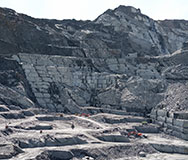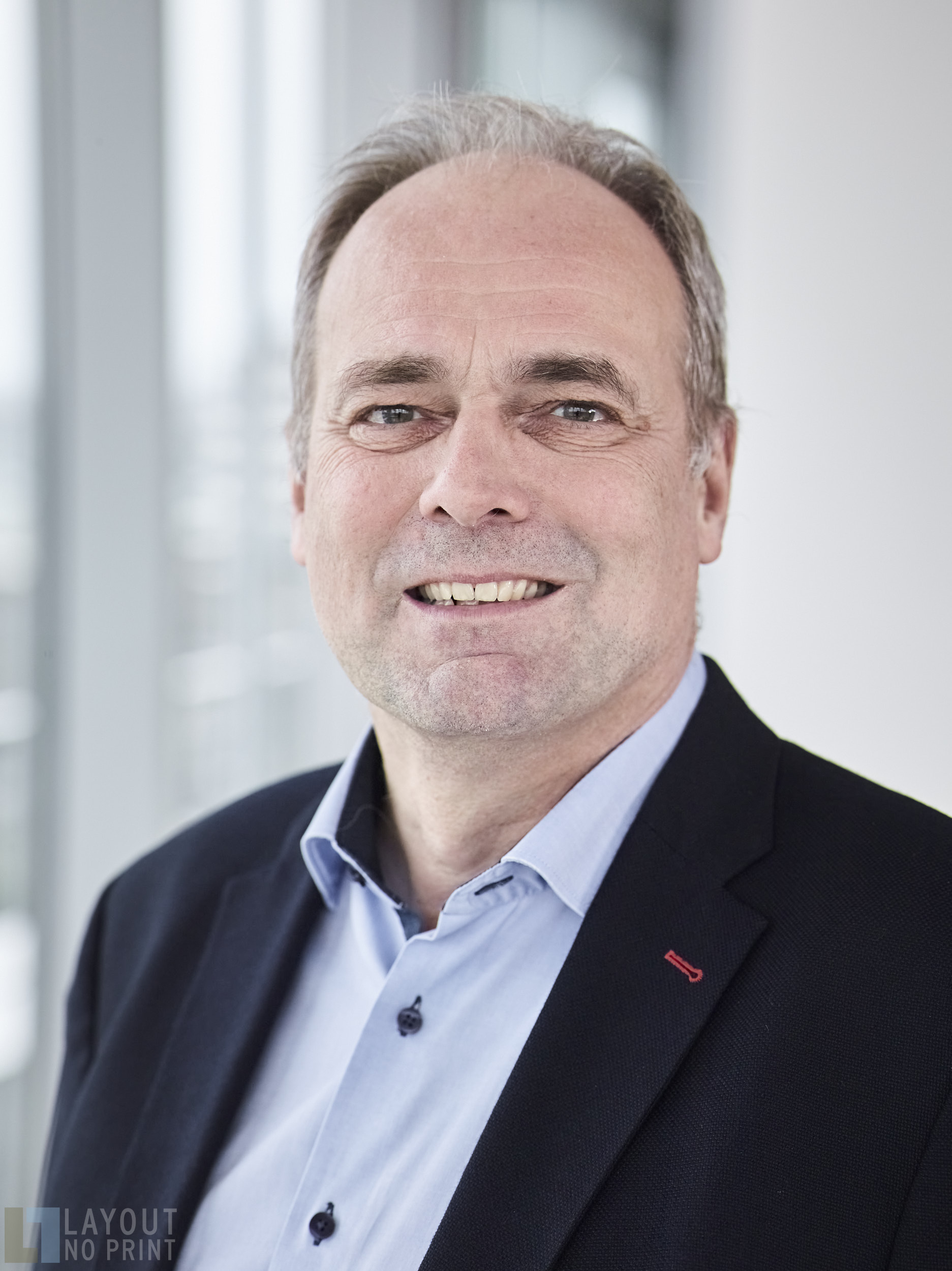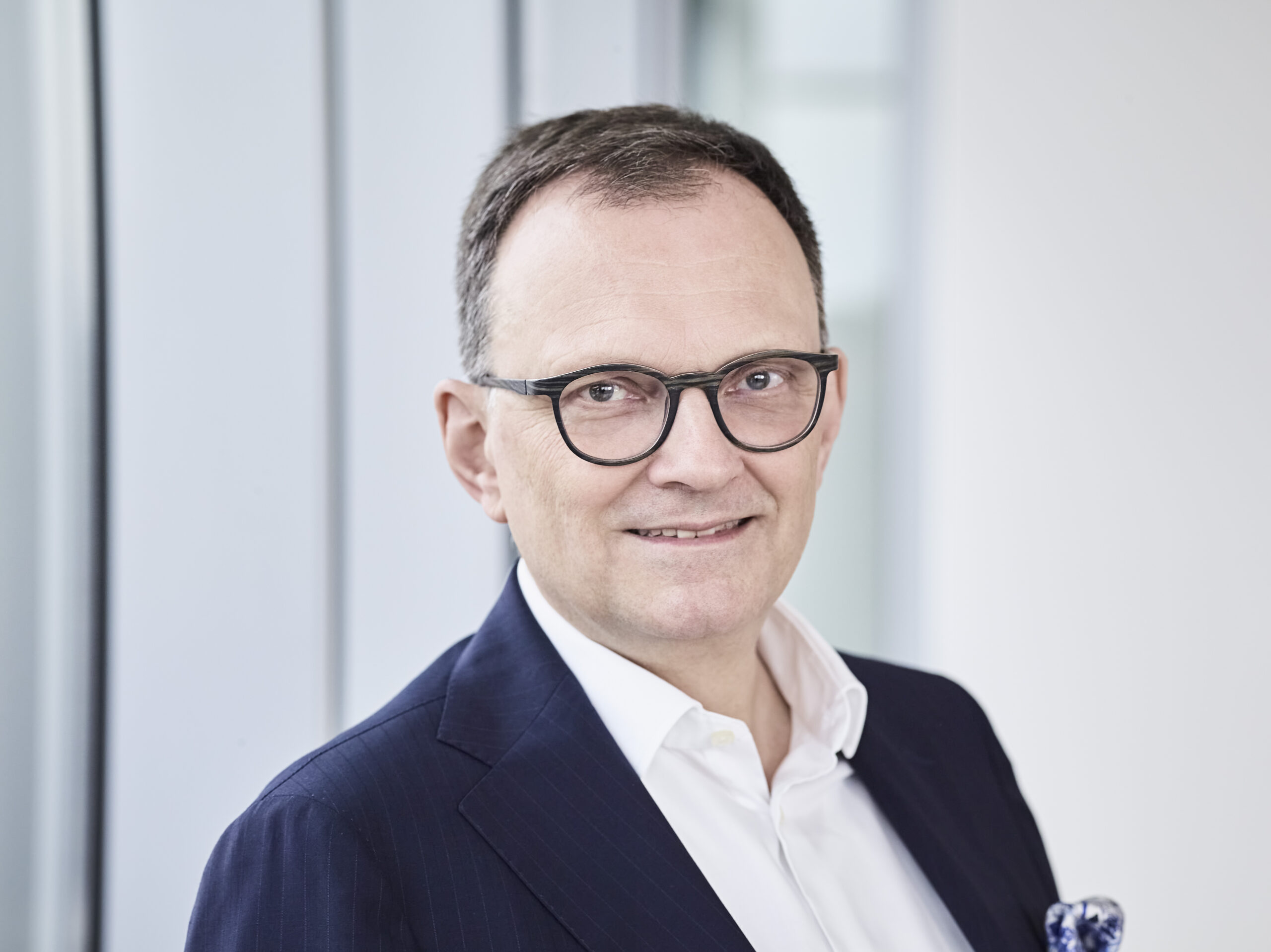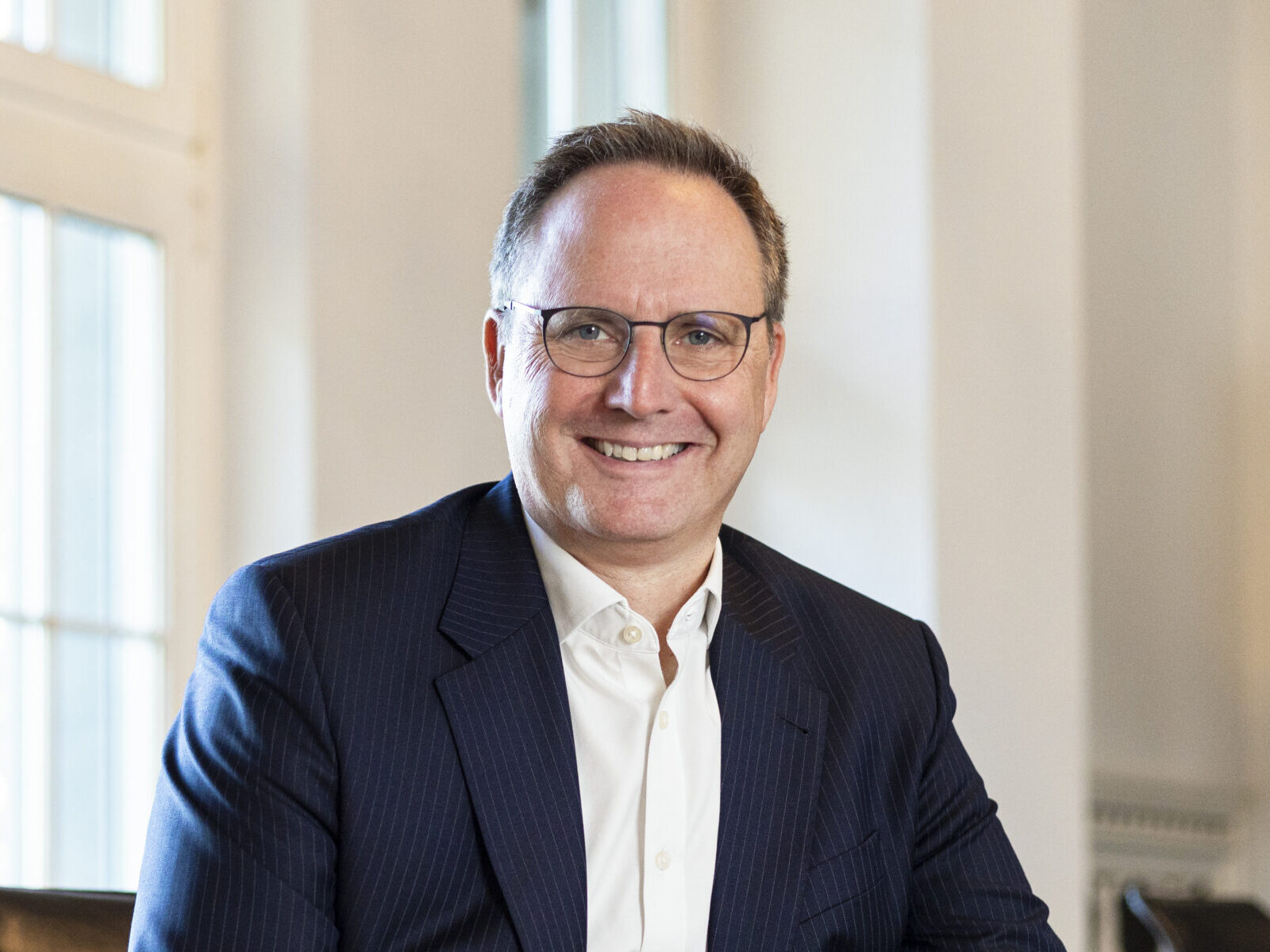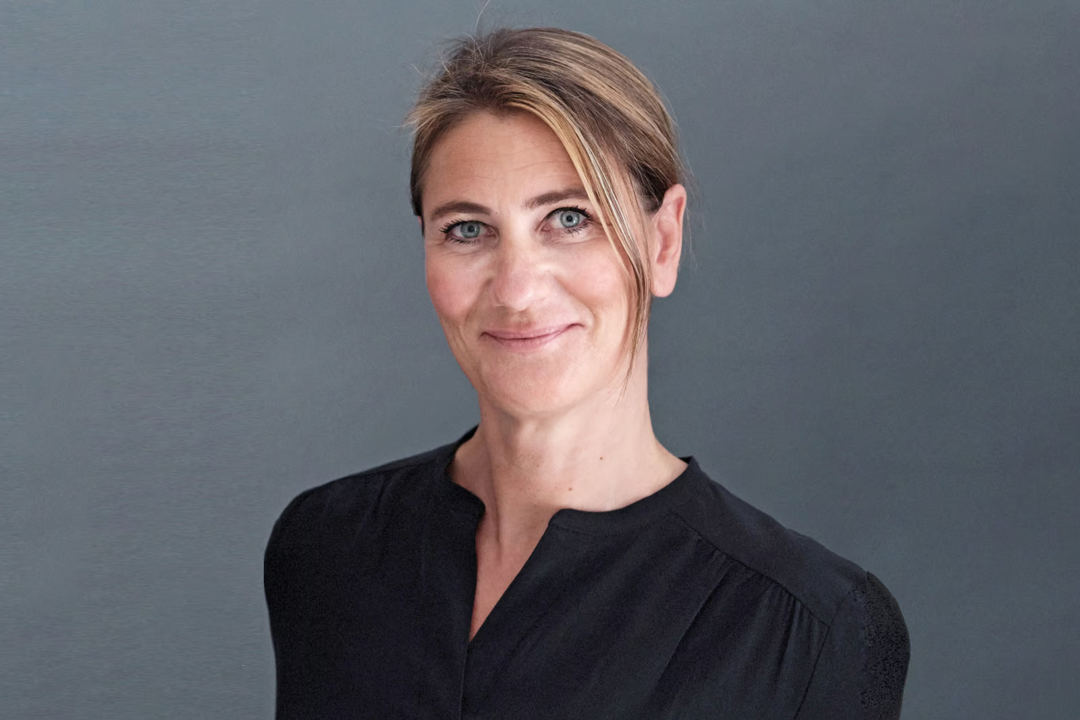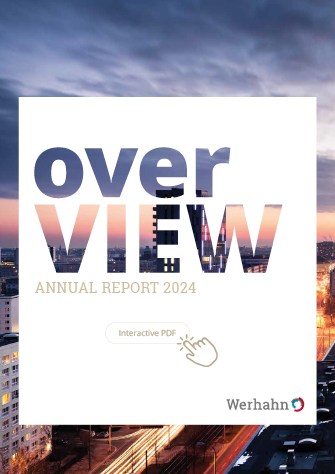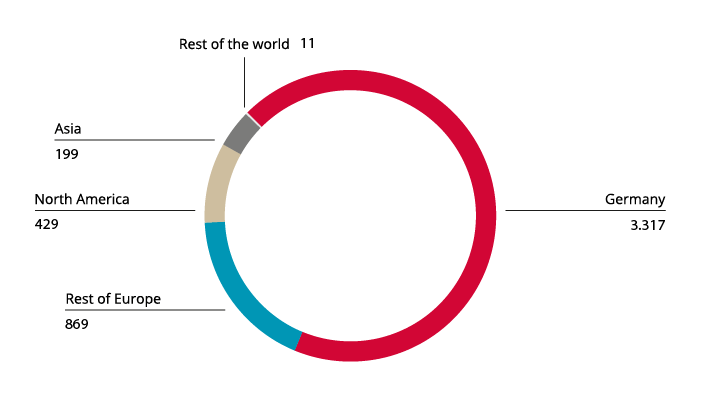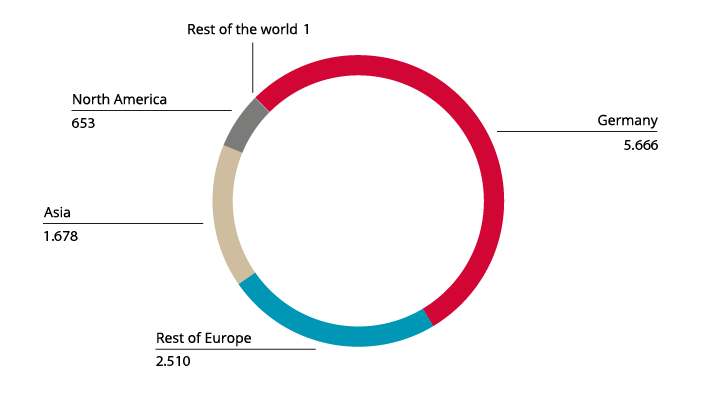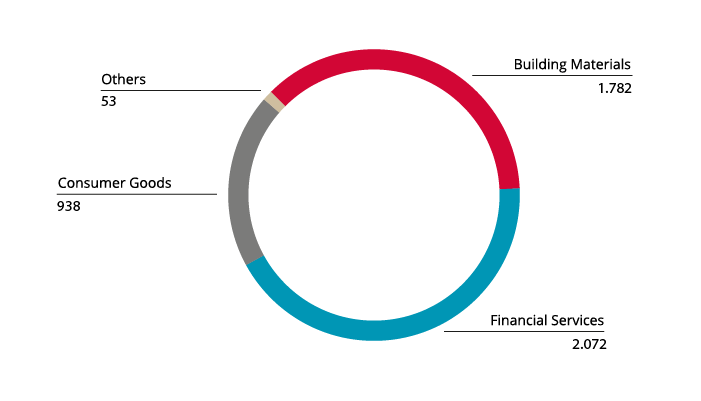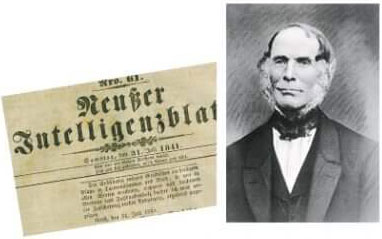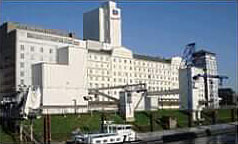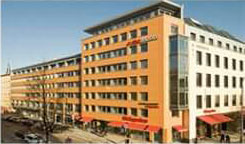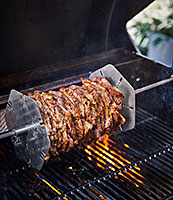The Wilh. Werhahn KG
Founded more than 180 years ago as a diversified family business, Werhahn has developed into a group of companies with diverse activities both domestically and internationally. Market and customer proximity, reliability, and social responsibility are values that the medium-sized family business has cultivated and lived by from the beginning. Werhahn is still 100 percent family-owned and based in Neuss. From here, Wilh. Werhahn KG directs the group’s activities.
Under this umbrella, Bankhaus Werhahn GmbH also has its home. It is the house bank of the family shareholders and companies of the group.
The supreme supervisory body of the Werhahn Group is the Supervisory Board. It includes representatives from the three family branches as well as non-family members. The supreme management body is the Management Board, currently composed of four non-family executives
SALES VOLUME 2024 BY REGIONS IN MILLION €
SALES VOLUME 2024 BY REGIONS IN MILLION €
EMPLOYEES 2024 BY COUNTRIES
EMPLOYEES 2024 BY COUNTRIES
SALES VOLUME 2024 BY BUSINESS UNITS IN MILLION €
SALES VOLUME 2024 BY BUSINESS UNITS IN MILLION €
A COMPANY FOR ENTREPRENEURS
Werhahn is decentralized. The group’s legally independent companies are organized into three corporate and six business units. Their flat management structure with short and unbureaucratic decision-making paths allows for flexibility and quick market response, benefiting customers. For each employee, this means a high degree of motivation but also personal responsibility
WE CONNECT VISIONS – ENTREPRENEURIAL – VALUE CREATING
The mission statement formulates the role understanding and value canon as well as the goal and purpose of Wilh. Werhahn KG: We connect visions – entrepreneurial – value-creating. It forms the basis of collaboration. Five values shape the work of the holding company:
- Future-oriented Entrepreneurship
- Personal Modesty
- Long-term Responsibility
- Competent Reliability
- Family Connectedness
Compliance
Werhahn’s code of conduct creates security
Werhahn Group and its employees are subject to various legal orders. Relevant for an internationally active Group are not only the laws of the respective company’s country of residence, but also the laws of the country where it is active. The Werhahn code of conduct was created to help executives and employees of the whole Group to take the right decisions. The codex illustrates the values of Werhahn Group and defines the norms of behavior that enable the Werhahn companies and their employees to maintain their reputation as well as the trust of their shareholders, business partners, and other institutions.
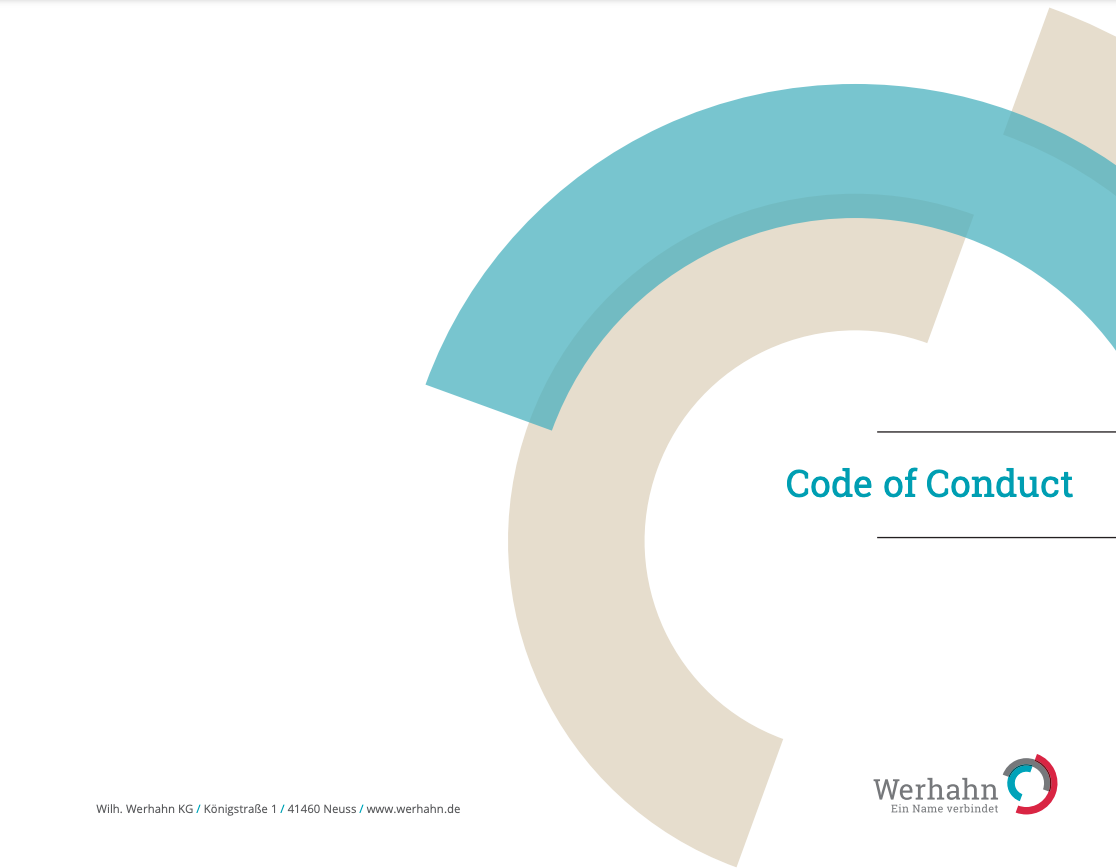
History
Diversified, focused, versatile
From the beginning, Werhahn was not engaged in just a single business, but in several different areas at once. This diversification is practiced to this day as a corporate principle that has proven itself over and over in the past 180 years, especially in difficult times.
Another corporate principle is focus, which means that Werhahn and its shareholders concentrate on the core values and competencies of the family business.
Werhahn strives to achieve sustained earnings growth and to create lasting value. In the past, just as much as in the present and in the future, it was necessary for companies to do more than just keep up with the changing times and orient their business activities accordingly. Innovation and the ability to position oneself in a changing market with new customer expectations are just as important in this regard as making active changes to the business portfolio.

1841
Foundation of the company by
Pete Wilhelm, known as Wilhelm Werhahn
Diversification right from the start
The range of products encompasses the timber
trade agricultural products, basalt, tuff and bricks, as well as guano fertilizer and cement
Conversion of the company into a general partnership
After the death of the founder, the company is converted from a business
under sole proprietorship into a general partnership. The three heirs are
liable in equal proportions. In 1977, Werhahn becomes a limited partnership
1871
Development of the mill industry
1871 Foundation of the oil mill Werhahn & Nauen
1873 Acquisition of the flower mill Nix und Cie, which becomes the root
of the former corporate division Baking Products
1880
Lending a real estate operations
Development of various property managements, which lay the foundation for
the current House and Real Estate branch of Wilh. Werhahn KG
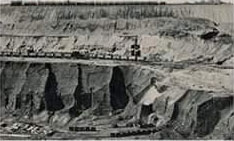
1888
Foundation of Basalt-Actien-Gesellschaft
Origin of current Aggregates business unit
1894
Engagement in the Rhenish lignite industry
Foundation of the Horrem briquette factory, which is closed in 1969
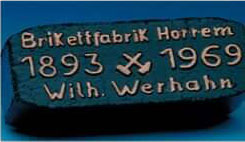
Acquisition of shares of the
slate producer Rathscheck
Origin of the current Slate business unit 1909 acquisition of all shares
1904
Official confirmation of the
Wilh. Werhahn company as banking business
Origin of the current banking house Werhahn GmbH
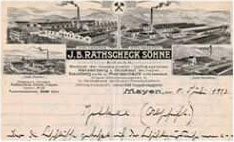
1906
Engagement in the lignite industry in central Germany
Acquisition of the Senftenberger Kohlewerke, which were confiscated by the
Red Army in 1945 and expropriated in 1947
1908
since 1908 expansion of the food industry
Acquisition of the dairies Schweizerhof (1908) and C. Bolle (1917),
the Georg Schätzlein GmbH (1929) and the Schad & Füllgrabe AG (1936),
1987 Sale of the complete food branch
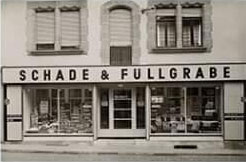
1920
During the 1920s and 1930s: modernization and restructuring
of all business units
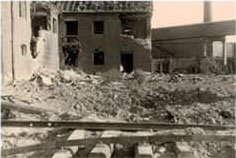
1945
Collapse and reconstruction
In the West, Werhahn invests heavily into the reconstruction of the business units.
In the East, all business operations collapse due to the loss of the brown coal factories and mines and the food stores of Schade & Füllgrabe
1966
First contract of association
Majority shareholding in
ZWILLING J. A. Henckels AG
Birth of the current Consumer Goods corporate
division; acquisition of the rest of the shares in 1979
1969
Acquisition of abc-Bank
Origin of the current business unit abcfinance
1978
Wilh. Werhahn becomes sole owner of Basalt AG
1988
Acquisition of the majority interest in the mill
Georg Plange GmbH & Co. (Diamant flour)
Acquistition of AKB-Bank
After the very successful development of the renowned
automobile credit bank, it is sold in 2002 to the Spanish bank
Santander Central Hispano
Outsourcing of the banking business
Outsourcing of the banking business and the ZN Haus und Grund into
the newly estabilshed Bankhaus Werhahn KG
1996
Majority interest in DEUTAG
Extension of the Aggregates business unit by asphalt production.
In 2006, DEUTAG is fully acquired by Werhahn
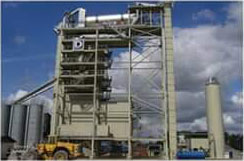
2002
Expansion of the building materials activities
Acquisition of Tendis GmbH & Co and shares of Deutsche Asphalt GmbH,
both of which are subsidiaries of Philipp Holzmann AG
2005
Schmidt acquisition
Purchase of the construction and building materials division of Dr. Schmidt Group
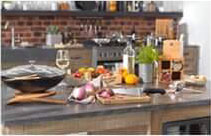
2008
Systematic expansion of the corporate division Consumer Goods
The cookware manufacturers Staub and Demeyere complement the kitchen line,
the beauty line grows in 2004, 2012 and 2013 through the acquisitions of
Tweezerman, alessandro International and the Chinese QVS Group;
the hairdressing supplies line.

2010
Dynamic growth of abcfinance through strategic acquisitions
Ten leasing and five factoring purchases until 2015
2011
Foundation of Bank11
The bank offers sales and purchase financing for the automotive trade.
Together with abcfinance it constitutes the corporate division Financial Services. 2013,
acquisition of C&A Bank and expansion of direct banking for private customers
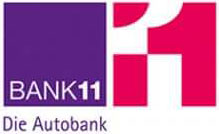
2014
Sale of the milling businesses
By selling its milling businesses, which were united into the Premium Milling
Group, Wilh. Werhahn KG separates from the largest part of its
corporate division Banking Products
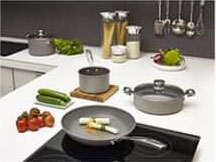
2015
Acquisition by thecorporate division Consumer Goods
Purchase of the Italian company Ballarini, expanding the product range of the kitchen
line into the strategically important segment of non-stick coated cookware
2016
175 years of Werhahn
Further expansion of the brand portfolio
The Zwilling Kitchenware business unit enters the growth market of BBQ and
outdoor cooking with the acquisition of Santos Grills and Flammkraft
2021
Change of ownership at United Salon Technologies
Wilh. Werhahn KG sells the Jaguar/Tondeo Professional Hairdressing Equipment business unit
2023
New slate extraction site in Spain
The Slate business unit takes over Pizarras La Baña and now has three
production sites in the northern Spanish slate region of Galicia
